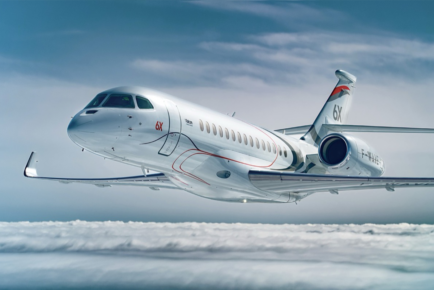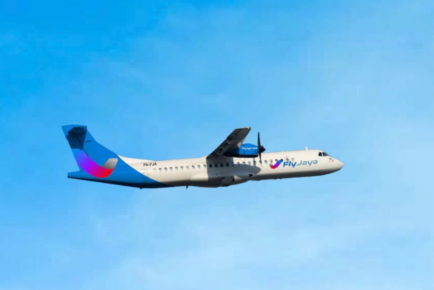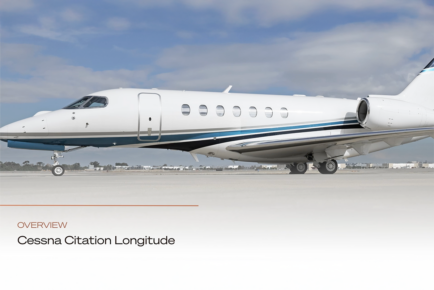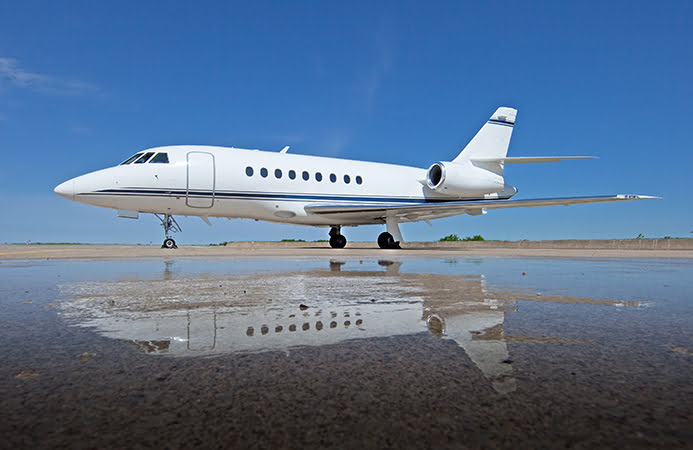
Overview including differentiating features from other aircraft in its category
The Falcon 2000 is a twin-engine French-made Business jet, and is essentially a slightly smaller development on the Falcon 900 trijet, with transcontinental range. The Falcon 2000 was originally conceived for the United States coast to coast market.
The Falcon 2000 jet comes with fault monitoring and digital diagnostic systems, which help the mechanic in troubleshooting and repair work. Most parts of the airplane are positioned to be easy for mechanics to reach and maintain. The Falcon 2000 was designed to spend as little downtime in the shop as possible.
As of January 2014, the Falcon 2000 market is comprised of 100% pre-owned. The percentage for sale is 10% with 100% under an exclusive broker agreement and average days on the market are 450 days.
Brief History
Dassault introduced the Falcon 2000 as the Falcon X in 1989. The development of the aircraft was carried out by Dassault in partnership with Alenia, and first flight came in 1993. Two years later, in 1995, the Falcon 2000 entered service.
The Falcon 2000 was the first private jet that Dassault designed without a physical model. Its design was completely digital, created by Computer Aided Three-dimensional Interactive Application (CATIA) software. This software helped improve aerodynamic structure and simplified the airplane’s systems.
Worldwide Appeal
Of the 230 Falcon 2000 aircraft in operation by continent, North America has the largest percentage at 70%, followed by Europe at 18% for a combined total of 88%. Also, 35% of the 230 Falcon 2000 jets in operation today are in fleet ownership with the largest fleet operator – Netjets U.S. and Europe having 29 and 6 aircraft respectively. Interestingly, 10% of the Falcon 2000 jets are leased.
Highlights
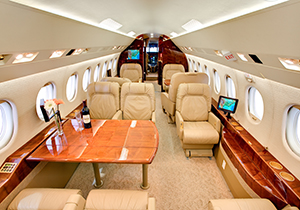 Performance
Performance
The Falcon 2000 is powered by two General Electric/Honeywell CFE738-1-1B engines each offering 5,918 pounds of thrust. The Falcon 2000 uses 245 gallons per hour (GPH). The range of the Falcon 2000 is 3,052 nm operating under NBAA IFR 4 passengers with available fuel.
Interior
The cabin volume for the Falcon 2000 is 1,024 cubic feet. Typical configuration features 8 passenger and 2 crew seats.
Design
The Falcon 2000 Maximum Take-Off Weight (MTOW) is 35,800 pounds with a maximum range of 3,130 nm.
Speed
| Maximum Cruise Speed: | 479 kts | 887 km/h | ||||||
| Long-range Speed: | 417 kts | 772 km/h |
Airfield Performance
| Takeoff distance: | 5,436 ft (1,657 m) | (SL, ISA, MTOW) | ||||||
| Landing distance: | 2,579 ft (786 m) | (SL, ISA, MLW) |
Operating Altitude
| Maximum operating altitude: | 47,000 ft (14,326 m) |
Noise Level (EPNdB)
| Takeoff: | 79.4 | Approach: | 93.1 | Lateral: | 86.4 |
|---|
Weights
| A. | Maximum ramp weight: | 36,000 lb (16,329 kg) | ||||||
| B. | Maximum takeoff weight: | 35,800 lb (16,239 kg) | ||||||
| C. | Maximum landing weight: | 33,000 lb (14,969 kg) | ||||||
| D. | Maximum zero fuel weight: | 28,660 lb (13,000 kg) | ||||||
| E. | Standard basic operating weight: | 21,600 lb (9,798 kg) |
Avionics
Rockwell Collins Pro Line 4
Resources
Contact Us at +1 919 941 8400 or [email protected] to request a custom range report including detailed aircraft comparisons.
Click Here to view Falcon 2000 aircraft for sale by Jetcraft.
SIGN UP FOR OUR MONTHLY JETSTREAM RECAP
Don't miss future Jetstream articles. Sign up for our Jetcraft News mailing list to receive a monthly eblast with links to our latest articles. Click to join the 1,800+ subscribers on our mailing list.


